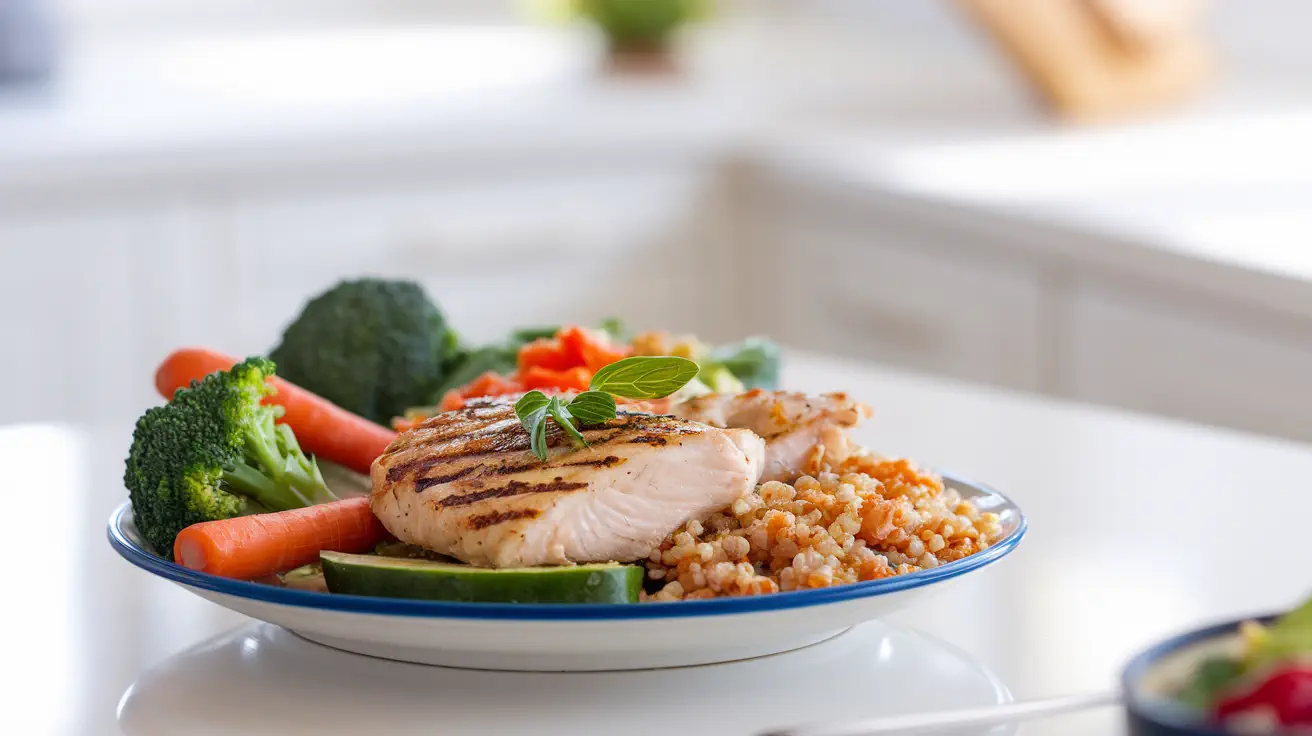
Maintaining a balanced diet is one of the most important steps toward leading a healthy lifestyle. It’s not about following restrictive diets or cutting out entire food groups; it’s about finding the right balance of nutrients to fuel your body, support your immune system, and help you feel your best every day.
In this ultimate guide, we’ll break down what a balanced diet looks like, the foods you should aim to include, and practical tips to ensure you’re nourishing your body properly every day.
What is a Balanced Diet?
A balanced diet is a way of eating that provides all the essential nutrients your body needs in the right proportions. These nutrients include:
- Carbohydrates
- Proteins
- Fats
- Vitamins & Minerals
- Water
By eating a variety of foods from all food groups, you can ensure that your body gets the nutrients it needs for energy, growth, and repair.
What to Eat Daily: Essential Components of a Balanced Diet
Here are the main components of a balanced diet and the best food sources to include in your daily meals.
1. Carbohydrates: The Energy Source
Carbs are your body’s primary source of energy, providing fuel for both your muscles and brain. Focus on complex carbohydrates for sustained energy.
Good Sources of Carbohydrates:
- Whole grains (brown rice, quinoa, oats)
- Vegetables (sweet potatoes, carrots, peas)
- Fruits (apples, bananas, berries)
- Legumes (lentils, chickpeas, beans)
Daily Intake: 45-65% of your total calories should come from carbohydrates.
2. Proteins: For Muscle Repair and Growth
Proteins are the building blocks of your body, essential for muscle repair, immune function, and the production of enzymes and hormones.
Good Sources of Protein:
- Lean meats (chicken, turkey, lean beef)
- Fish (salmon, tuna, sardines)
- Eggs
- Plant-based proteins (tofu, tempeh, quinoa, legumes)
Daily Intake: Protein should make up 10-35% of your total calories.
3. Healthy Fats: Essential for Brain and Heart Health
While fats often get a bad reputation, they’re essential for a healthy body. Healthy fats help support brain function, absorb vitamins, and provide long-lasting energy.
Good Sources of Healthy Fats:
- Avocados
- Nuts and seeds (almonds, chia seeds, flaxseeds)
- Olive oil and coconut oil
- Fatty fish (salmon, mackerel, sardines)
Daily Intake: Fat should make up about 20-35% of your daily calorie intake.
4. Vitamins and Minerals: Small but Mighty Nutrients
Vitamins and minerals are crucial for overall health, from immune support to bone strength and energy production. Incorporating a wide variety of fruits, vegetables, and other whole foods ensures you get the full range of essential nutrients.
Good Sources of Vitamins & Minerals:
- Vitamin C: Citrus fruits, bell peppers, strawberries
- Vitamin A: Carrots, spinach, kale
- Calcium: Dairy products, leafy greens, fortified plant milks
- Iron: Spinach, red meat, lentils, tofu
Daily Intake: Make sure to eat a variety of colorful fruits and vegetables daily to cover your micronutrient needs.
5. Water: The Most Important Nutrient
Water is often overlooked, but it is the most important nutrient your body needs. It keeps your body hydrated, supports digestion, and helps with the absorption of nutrients.
Daily Intake: Aim for at least 8 glasses (2 liters) of water per day, more if you’re active.
How to Build a Balanced Plate: Practical Tips for Daily Meals
Now that you know the essential components of a balanced diet, here’s how to incorporate them into your daily meals.
Breakfast
Start your day with a mix of protein and carbohydrates for sustained energy.
- Whole grain toast with avocado and eggs
- Oatmeal topped with fruit and nuts
Lunch
A balanced lunch should include lean protein, healthy fats, and plenty of vegetables.
- Grilled chicken with quinoa and roasted vegetables
- Lentil salad with avocado, tomatoes, and olive oil dressing
Dinner
For dinner, focus on a healthy balance of lean protein, vegetables, and whole grains.
- Salmon with brown rice and steamed broccoli
- Tofu stir-fry with mixed vegetables and brown rice
Snacks
Opt for healthy, nutrient-dense snacks throughout the day to keep your energy levels stable.
- Hummus with carrots and cucumber
- Greek yogurt with berries and chia seeds
Final Tips for a Successful Balanced Diet
✔ Plan your meals ahead of time to ensure you’re getting the right balance of nutrients.
✔ Avoid processed foods and focus on whole, nutrient-dense options.
✔ Eat the rainbow by incorporating a variety of colorful fruits and vegetables into your meals.
✔ Practice portion control to avoid overeating and maintain a healthy weight.
✔ Stay consistent—making balanced eating a daily habit is key to long-term success.
